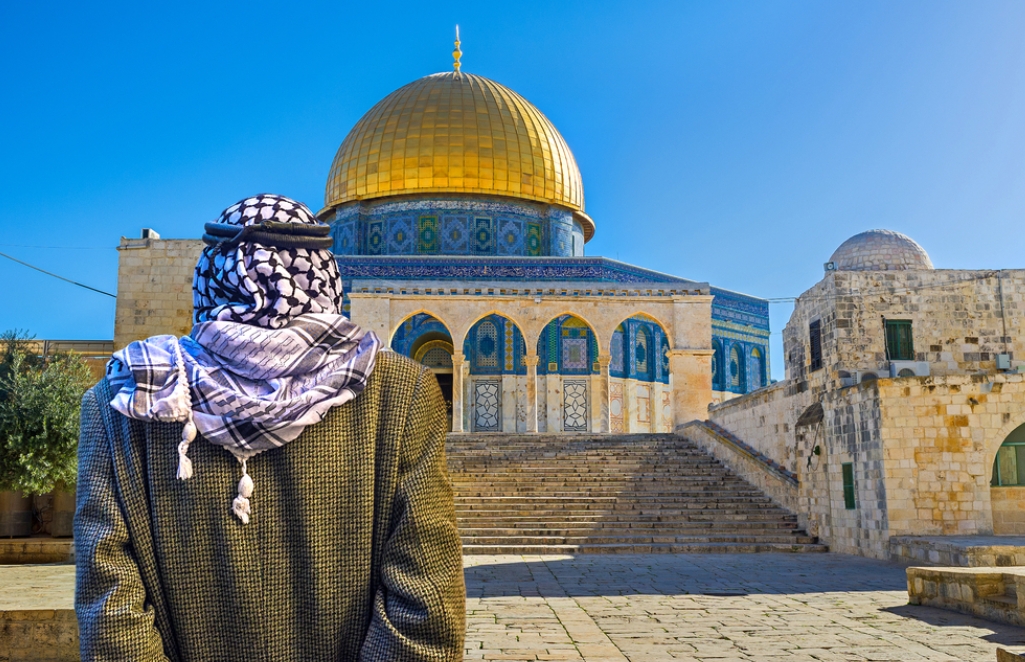History and Archaeology
The Origins of the Palestinians and the Israeli–Arab Conflict: History, Identity, and Faith
From Ottoman rule to the modern struggle over the Land of Israel, this analysis traces how the Palestinian identity emerged, why peace remains elusive, and how Jewish history views today’s conflict through the lens of destiny and redemption
 (Photo: shutterstock)
(Photo: shutterstock)Where did the Palestinians come from? Why do they believe the land of Israel belongs to them? Is there truly no hope for peace?
* * *
In the final years of the Ottoman Empire, the British conquered the Land of Israel in 1917 and sought to divide it between Jews and Arabs. At that time, there was no such thing as a “Palestinian people.” The Arabs living in the land had no unified name, no shared national identity, and no sense of common origin. Their coming together as a distinct group in the land occurred only after they were freed from Ottoman rule. Many were Bedouin nomads or refugees from neighboring Arab countries, and their goal was simply to establish another Arab state — no different from Jordan, Syria, or Lebanon.
The British agreed to divide the land between Jews and the Arab inhabitants and refugees, and in 1947 the United Nations proposed the Partition Plan — to create two states, one Jewish and one Arab.
While the Jews accepted the plan and were willing to make peace, the Arabs rejected it, demanding the entire land and calling to “drive the Jews into the sea.”
Thus, the Jewish people moved forward and established an independent state with the backing of Britain and the UN — a development whose timing and details seem almost providential, woven together like a masterwork of history leading to the present reality.
The War of Independence and the Division of the Land
Even after the State of Israel was founded, it could have lived in peace with the local Arab farmers and refugees — if only the Arab nations had not sought to destroy Israel and seize all the land.
In 1948, at the very moment Israel declared independence, five major Arab armies invaded. This became the War of Independence, and the goal of the Arab forces was the complete annihilation of the new Jewish state.
Miraculously, Israel triumphed against all odds. In that war, Israel captured territories beyond the UN partition borders — areas that later came to be called the “Green Line.”
The First “Palestinians”
A year after the war, Israel transferred most of the Arab residents under Jordanian control in the West Bank and Egyptian control in Gaza. (As a side note, notice that while Arab nations claimed to defend Palestinian refugees, none of them except Jordan ever granted these people citizenship or allowed them to immigrate freely.)
It was only after 1948, following Israel’s establishment, that these Arab farmers and refugees began calling themselves “Palestinians.”
They chose this name to identify themselves — somewhat symbolically, with the ancient Philistines, who had fought the Israelites 3,000 years earlier.
Nineteen years later, in 1967, the Six-Day War broke out, when virtually all the surrounding Arab states including Egypt, Jordan, Syria, Iraq, Saudi Arabia, Libya, Sudan, Tunisia, Morocco, and Algeria, joined forces to destroy Israel. Once again, Israel won an astonishing victory, and Gaza came back under Israeli control.
Why There Is “No Partner for Peace”
In theory, peace could have been achieved long ago. However, Palestinian leadership continues to demand control over all of Israel, while engaging in acts of terror aimed at Israel’s destruction.
Internal conflicts between Palestinian factions — particularly Hamas in Gaza and the Palestinian Authority in the West Bank, have also prevented the formation of a unified government capable of making lasting peace agreements. Hence the well-known expression: “There is no partner for peace.”
Ironically, despite ongoing rocket attacks, Israel still supplies Gaza with electricity and water, but cannot grant it full political independence (such as airports and seaports), as these would be immediately used to import weapons and rockets — a danger made clear by the statements of Palestinian leaders openly calling for Israel’s destruction.
 (Photo: shutterstock)
(Photo: shutterstock)Failed Peace Attempts
Israel has made numerous efforts to promote peace, including the Oslo Accords (1993), when Prime Minister Yitzhak Rabin transferred thousands of weapons to the Palestinian Authority to help it build a self-governing state, and the Gush Katif withdrawal (2005), when Israel evacuated its own citizens from Gaza. Each attempt, however, only increased terrorist activity, strengthened extremist factions, and brought violence closer to Israel’s heartland.
Meanwhile, “progressive” voices in Israel and abroad continue to demand that Israel withdraw to the 1967 borders and “free Palestine” — proposals which, from a security perspective, would place Israel in an existentially vulnerable position, surrounded by rockets on all sides. Hence, from both a military and theological standpoint, there is no lasting solution to the Arab-Israeli conflict until the coming of Mashiach.
A Nation Between the Hammer and the Anvil
Israel’s situation is one unique in human history — a small nation balanced between the hammer and the anvil: on one side, dozens of Arab states calling for its destruction; on the other, many countries at the UN eager to see it weakened or condemned.
We live, as it were, on a thin, trembling rope, where the smallest misstep could lead to catastrophe.
It is striking — and deeply troubling, that the Jewish people remain the only nation on Earth against whom open calls for annihilation are still made. As Hezbollah’s leader once said: “I hope all the Jews will gather in Israel, so that I won’t have to hunt them down across the world.”
No such statements are made against any other people.
In the End of Days
Our sages taught that this extraordinary situation is not coincidence, but a sign of the “End of Days.” Heaven has arranged history in this way to awaken us and remind us that we have no one to rely on but our Father in Heaven (Mishnah, Sotah 9:15).
What must we do in such times? Moses already foretold the answer 3,300 years ago: “When you are in distress, and all these things have come upon you, in the latter days, you will return to the Lord your God and listen to His voice.” (Deuteronomy 4:30)

